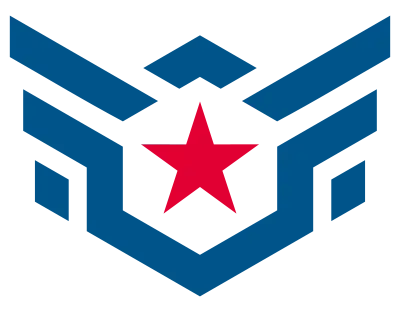Can a person who is deaf and blind excel as a cleaning professional?
Yes.
“We need 10 Beths!”
That’s what Trent Thomas, a custodial supervisor for the Little Rock Arkansas Federal Building, said when asked about the work of his top employee, Elizabeth “Beth” Cole-Pope.
Cole-Pope is both deaf and blind.
“I was born deaf and was diagnosed with Usher Syndrome when I was 15 and started losing my vision at age 25,” she said. Throughout her life, Cole-Pope has been determined to be independent. She earned a college degree and set out to join the workforce.
But Beth quickly discovered a hard employment reality faced by many individuals who are both deaf and blind. According to the National Deaf Center, only 38% of deafblind people are employed. Stigmas, biases, and other barriers often stand in the way of qualified job candidates who happen to have a disability.
“I searched and searched for a job for a very long time,” Cole-Pope said. “After I got a college degree, I still searched for the right job, but I couldn’t find it,” she said.
Ashley Beatty, Cole-Pope’s employment specialist and interpreter, witnessed these obstacles firsthand.
“I watched the barriers that we would face,” she said. “As the employment specialist, I would go everywhere and ask if they would even just interview her. It was so hard to convince people to let us even come in, because when you start using the words ‘deaf’ and ‘blind,’ people get super scared.
Navigating the Path to Meaningful Employment While Deaf and Blind
Fortunately, change was on the horizon for Cole-Pope. After relocating to Arkansas, a vocational rehabilitation counselor connected her with PRIDE Industries. PRIDE Industries was awarded a contract to clean the Little Rock Federal Building through SourceAmerica and the AbilityOne® Program, organizations dedicated to delivering high-quality products and services to federal agencies while supporting quality employment for people with disabilities.
PRIDE Industries hired Cole-Pope as a janitor on the contract.
To ease her transition into the new role, Cole-Pope worked with an employment coach who specialized in American Sign Language (ASL). The coach helped her navigate the workspace, meet employer expectations, and communicate with colleagues, most of whom did not know ASL.
As Cole-Pope pointed out, resources like coaches give people with disabilities the tools they need to find and thrive in employment.
“The job coach also knows sign language and so that’s very helpful and they can help me do my job better and I can be more familiar with the area and work with my team better,” she said.
Beth Cole-Pope tells her employment story
Inclusive Hiring Leads to Innovation
Since Cole-Pope is both deaf and blind, many conventional cleaning methods do not work for her. Cole-Pope has learned to adapt her own method of cleaning that relies entirely on touch, feeling her way around the rooms and surfaces she needs to clean.
“I watch her work, and her method is amazing,” Trent Thomas said. “We’ve actually started using her methods to train other people on the way she cleans everything she touches.”
Diverse hiring practices have long proven to lead to innovations in the workplace. It’s something that Beatty has seen play out in her role as an interpreter. “The only thing that I’ve ever heard from people who have hired blind individuals, deaf individuals, or deafblind individuals is that they wish there were more employees just like them.”
Breaking Down Barriers
Despite facing challenges in her job search, Cole-Pope was able to find a career that brings her pride and a sense of purpose. Her story demonstrates the potential of employees with disabilities.
“I know that there are many deafblind people out in the world, and I don’t know if they’re happy with their lives or happy at their jobs,” Cole-Pope said. “But I know that I’m deaf and blind, and I’m so happy working here.”
Through PRIDE Industries, she has found the independence she was looking for. And by modeling new cleaning techniques, she has made a positive impact in her workplace. That impact was recognized by the state when Arkansas Rehabilitation Services (ARS) honored her during their National Disability Employment Awareness Month 2024 kick-off celebration in October.
“I want people to know that people who are deaf and blind can do things,” she said. “Just break those barriers down and just let us in. Let us work.”
